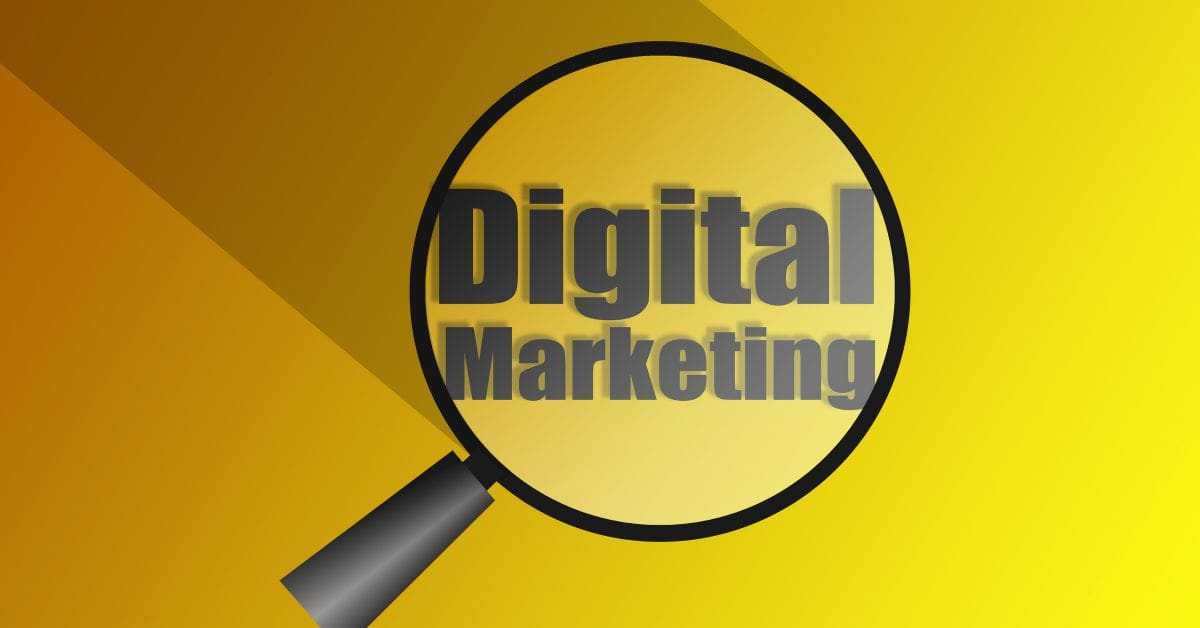Whether you are looking to enhance your online presence, drive conversions, or boost brand awareness, selecting the right digital marketer can be a game-changer for your small business or startup’s growth and success. However, how do you ensure that you are choosing the right candidate for the job? The world of digital marketing is constantly evolving, and it takes a knowledgeable and adaptable professional to navigate through the ever-changing landscape. Making the wrong hiring decision can not only waste valuable time and resources but also hinder your marketing efforts.
To help you make the right choice and find the digital marketer who will truly elevate your business, you need to be prepared with a set of questions that will assess the candidate’s tactical knowledge, strategic viewpoint, and culture-fitment.
We bring to you this ultimate list of seventeen questions, in this 3-part blog post. Each part will bring to you an in-depth reasoning for the questions you should ask you potential digital marketer. By asking the right questions, you can ensure that you hire a digital marketer who will bring value and expertise to your team.

Part 1 – Check for Tactical Knowledge
When it comes to hiring a digital marketer for your team, it is crucial to ask the right questions to assess their tactical knowledge. Tactical knowledge encompasses the hands-on skills and proficiency a digital marketer holds to expertly execute marketing tactics and attain specific outcomes. Start with these questions to gauge the functional knowledge of your potential digital marketer:
1. How do you structure and optimise complex digital marketing campaigns, and measure its impact based upon key KPIs (key performance indicators)?
Why is it important:
When it comes to hiring a digital marketer for your team, it is crucial to find someone who can optimise complex campaigns and measure their impact based on key performance indicators (KPIs). This is not an easy task, as it requires a deep understanding of digital marketing strategies and the ability to analyse data effectively. To help you find the right candidate, here things to consider about the interview process.
What to look for:
Candidates who not only understands the complexities of digital marketing campaigns but also has a proven record of accomplishment of optimising campaigns and achieving key performance indicators.
The ideal response should highlight the candidate’s operational strength, attention to detail, and ability to prioritise tasks. Focus on their understanding of:
- KPIs such as conversion rates, cost of acquisition (CAC), and Click-through Rates (CTR).
- Specific details about the campaign, the KPIs they tracked, and the impact it had on the business.
- Any cost-saving strategies they have used without compromising campaign effectiveness.
- Their experience with tools and techniques used to track customer behaviour and optimise campaigns based on these insights.
- Specific KPIs they have achieved and explain how their efforts have impacted on the bottom line.
2. How do you calculate customer lifetime value (LTV)?
Why is it important:
When it comes to digital marketing, understanding customer lifetime value (LTV) is crucial for measuring the long-term impact of your campaigns. This is a particularly important metric because it allows you to calculate the total revenue a customer is expected to generate throughout their relationship with your business. This not only helps you evaluate the profitability of your marketing efforts but also enables you to make smarter decisions about customer acquisition and retention strategies.
What to look for:
During the interview process, it is important to ask candidates about their understanding of LTV and how they calculate it. Here are a few key points to consider:
- Look for candidates who can explain how LTV (Lifetime Value) reflects the value a customer brings to the business over time.
- Ask candidates about the formula they use to calculate LTV. While there are different formulas depending on the business model, a commonly used formula is:
LTV = Average Purchase Value X Purchase Frequency X Customer Lifespan.
- A strong digital marketer should be able to explain how they gather the necessary data to calculate LTV. This may include analysing past customer purchase behaviour, average order value, customer retention rates, and customer churn rates.
- Look for candidates who can demonstrate their ability to segment customers based on their potential LTV. This allows for more targeted marketing efforts, focusing on high-value customers who are likely to generate the most revenue over time.
- It is also important to ask candidates how they use LTV in their decision-making processes. Look for answers that highlight their ability to allocate marketing budgets, prioritise customer acquisition strategies, and implement retention campaigns.
Remember, a candidate who can effectively calculate and utilise customer lifetime value in their digital marketing strategies is more likely to make data-driven decisions that lead to business growth and increased ROI.
3. What Platforms are your Favourite to work in, and why?
Why is it important:
During the interview process for hiring a digital marketer, it is crucial to ask candidates about the platforms they prefer to work with and why. By knowing this information, hiring managers can understand the range of tools/ platforms to ensure marketing success and to streamline basic tasks like:
- Scheduling social media posts
- Creating images and other content
- Analysing performance of campaigns
What to look for:
Here are a few key points to consider when you are discussing this with a potential candidate:
- Look for candidates who have experience with a variety of platforms. A strong digital marketer should be well-versed in multiple platforms, as each one has its own unique features and benefits. Ask candidates about the platforms they have worked with in the past and how they have utilised them to achieve marketing objectives.
- Pay attention to the candidate’s reasoning behind their platform preferences. Different platforms excel in different areas, so it is important to understand why a candidate favours a particular platform. Factors such as target audience, marketing goals, and available features should all be considered.
- Ask candidates about their experience with popular digital marketing platforms such as Google Analytics, Facebook Ads Manager, and email marketing tools like Mailchimp or HubSpot. These platforms are widely used in industry and familiarity with them is a plus.
- Candidates should be able to provide specific examples of successful campaigns or strategies they have implemented using their preferred platforms. Look for candidates who can demonstrate their ability to leverage these platforms to drive conversions, improve ROI (Return on Investment), and reach target audiences effectively.
- It is also important to consider the candidate’s willingness to adapt and learn about new platforms. The digital marketing landscape is constantly evolving, with new platforms and tools emerging regularly. A candidate who is open to exploring and mastering new platforms demonstrates their commitment to staying up to date with the latest trends and technologies.
Overall, the platforms a candidate prefers to work with can provide valuable insights into their digital marketing skills and expertise. It is essential to find a candidate who not only has experience with various platforms but can also strategically select and utilise them to achieve marketing success.
4. What Types of Budgets Have You Managed?
Why is it important:
Whether you currently envisage your digital marketer to handle your marketing budgets or not, it is crucial to gain insight into their knowledge and on-the-ground experience of the same. Digital marketing campaigns require financial resources, and hiring a candidate with the ability to effectively allocate and optimise budgets can make a significant impact on the success of your marketing efforts.
It is also important to inquire about the candidate’s experience in forecasting and estimating budgets. This skill involves analysing historical data, market trends, and campaign objectives to create accurate projections of future expenses. Candidates who can effectively forecast budgets demonstrate strategic thinking and a strong understanding of the digital marketing landscape.
What to look for:
Candidates with experience in setting and managing key performance indicators (KPIs) can be especially valuable. These individuals understand the importance of aligning marketing objectives with the overall business goals and can effectively measure the success of campaigns against these set targets.
Start by asking candidates about the types of budgets they have managed in their previous roles. Look for candidates who have experience with diverse budgets, including both small and large-scale campaigns. Managing different budgets demonstrates adaptability and the ability to tailor strategies to specific resources.
5. How Do You Prioritise Projects or Tasks?
Why is it important:
Given the expansive and dynamic nature of the digital marketing domain, encompassing diverse channels, multifaceted campaigns, and evolving strategies, the skill of prioritisation emerges as a critical skill for achieving desired outcomes. Competence in discerning which initiatives warrant immediate attention, allocating resources judiciously, and orchestrating efforts in alignment with overall goals distinguishes an effective digital marketer from the rest. Thus, probing into their methodologies, decision-making processes, and past experiences in navigating the intricacies of project prioritisation unveils valuable insights into their potential for success within the ever-evolving digital landscape.
What to look for:
- Start by asking candidates about their process for prioritisation.
- Do they use any specific frameworks or methodologies?
- Look for answers that demonstrate a logical and systematic approach.
For example, some marketers may prioritise projects based on their potential impact on key performance indicators (KPIs) or align them with the overall marketing objectives.
It is also important to assess a candidate’s ability to prioritise based on urgency and deadlines. In the fast-paced world of digital marketing, there are often multiple deadlines to meet. A skilled digital marketer should be able to manage their time effectively and ensure that critical tasks are completed on time.
Additionally, ask candidates about their experience in handling multiple projects simultaneously. This will give your insight into their organisational skills and ability to multitask. Look for candidates who can demonstrate how they have successfully juggled multiple projects while still delivering quality results.
Another aspect to consider is a candidate’s ability to prioritise based on data and analytics. Analytics play a crucial role in digital marketing, as they provide insights into the performance of various campaigns and channels. A strong digital marketer should be able to analyse data and make data-driven decisions when prioritising projects and tasks.
6. Tell me about a past project that you are proud of?
Why is it important:
When interviewing digital marketers for your team, it is essential to not only assess their skills and knowledge but also their experience and achievements. One effective way is to understand about their past successes. This question offers valuable insight into a candidate’s capabilities, creativity, and success in executing digital marketing campaigns.
What to look for:
In their response, a competent digital marketer should be able to articulate the project’s objectives, strategies implemented, and measurable outcomes achieved.
- Look for candidates who demonstrate a holistic understanding of the project, from the initial planning stages to the results.
- An ideal candidate might discuss a successful content marketing campaign where they utilised various digital marketing tools and techniques to increase brand visibility, engage the target audience, and drive conversions.
- Furthermore, a strong candidate should be able to highlight their ability to adapt and adjust marketing strategies based on data analytics and customer feedback.
- When evaluating their response, pay attention to the candidate’s storytelling ability and enthusiasm. Do they sound genuinely excited about the project and the results it achieved?
In conclusion, asking candidates about a past project they are proud of is an effective way to assess their skills, creativity, and ability to drive measurable results in the field of digital marketing. Look for candidates who are not only accomplished in executing campaigns but also demonstrate an understanding of data analytics, adaptability, and a genuine passion for their work.
When selecting a Digital Marketer in today’s fast changing digital market, analysing a candidate’s tactical understanding is unquestionably critical. Technical knowledge and expertise are required to navigate the complex tools and platforms that power the digital realm.
Having said that, while tactical ability is necessary, it must be supplemented by strategic thinking to achieve long-term success in the ever-evolving field of digital marketing.
Part 2- Delve into Strategic Knowledge Questions

When interviewing digital marketers for your team, it is important to go beyond just assessing their current skills and experience. In the fast-changing world of digital marketing, a successful professional can deliver today, but keeps an eye on upcoming trends. S/he can operationalise the current role, while understanding the larger strategy behind it. Hence, it is important to ask questions that bring in strategic aspects of the role and help determine if the candidates have the necessary insights to drive successful marketing campaigns.
Here are some of the questions to assess this:
7. How Do You Stay up to Date with Industry Changes?
Why is it Important:
Staying abreast with industry changes is crucial for any digital marketer. The digital marketing landscape is constantly evolving, with modern technologies, platforms, and trends emerging all the time. As a result, it is imperative for digital marketers to stay on top of these changes to stay ahead of the competition and deliver effective marketing strategies.
What to look for:
When interviewing candidates for a digital marketing role, it is important to ask them how they stay up to date with industry changes. Here are a few elements to gauge their knowledge and commitment to staying informed:
- Candidates who can name specific sources they follow, such as Moz, HubSpot, or Search Engine Journal.
- Individuals who are familiar with platforms’ official blogs, attend webinars, or participate in online communities where these updates are discussed.
- Those who have attended relevant conferences such as Social Media Marketing World, Content Marketing World, or Inbound.
- People who are active participants in communities like Reddit’s /r/marketing or inbound.org.
- Persons who follow industry leaders and influencers on platforms like Twitter, LinkedIn, or Facebook to stay informed.
- Look for candidates who have recently completed certifications or courses on platforms like Google Academy for Ads, HubSpot Academy, or Udemy.
- Individuals who can provide specific examples of how they leveraged their knowledge of industry trends to optimise campaigns, drive better results, or overcome challenges.
By asking these questions, you can assess a candidate’s commitment to staying informed about industry changes and their ability to adapt and incorporate new strategies into their work. Identify candidates who demonstrate a genuine passion for learning and growth – these are the ones who will thrive in the fast-paced world of digital marketing.
8. How Do You Explain Complex Answers to a Client or Someone in a C-Suite Role?
Why is it Important:
When working as a digital marketer, it is common to encounter complex concepts and strategies that may be difficult for clients or leadership team members to understand. Being able to explain these complex answers in a clear and concise manner is a crucial skill that every digital marketer should possess.
What to look for:
Candidates who can break down complex answers into simpler terms that an executive team leader can relate to. This could involve using business analogies that make the concept more relatable and relevant for a leader or client. Another method could be using data and visualisation to succinctly capture the campaign information and help with decision making for future campaigns.
An ideal candidate will also be able to:
- Use visual aids and data when explaining complex answers. Creating charts, graphs, or slideshows that illustrate the information in a visual format can make it easier for the client or C-Suite member to understand.
- Tailor their explanations to the specific audience.
- Avoid jargon or technical terms that may confuse or alienate the listener.
Lastly, it is crucial the interviewee is patient and empathetic when explaining complex answers. Empathy is crucial to help build a recognition that not everyone has the same level of understanding or familiarity with digital marketing concepts.
9. Give an example of a go-to marketing strategy that you implemented for a product. How did you learn about the user or end customer?
Why is it Important:
Asking a digital marketing person to provide a case study or example of a go-to-market strategy they implemented for a specific product helps give an insight into their larger vision of the business. Digital marketers can tend to get operational and miss the forest for the trees. However, understanding the end-user’s perspective is critical to being able to design an effective marketing campaign.
What to look for:
An ideal candidate should be able to explain the steps they took to learn about the user or end customer, such as conducting market research, surveys, social media listening, and competitor analysis. The marketer should also be able to describe how they used the insights gathered from the activities to create customer personas, tailor marketing messages, and choose appropriate marketing channels.
Here are some other specific points to look for in their answer:
- Clear Strategy: The candidate should be able to articulate a well-defined marketing strategy that they implemented in the past.
- Research and Analysis: Look for candidates who demonstrate a thorough understanding of how they learned about the user or end customer. A strong candidate will highlight their ability to gather insights and use them to inform their marketing strategy.
- Target Audience Segmentation: A good digital marketer understands the importance of segmenting the target audience. Look for candidates who can explain how they identified different customer segments and tailored their marketing approach accordingly.
- Data-Driven Approach: The candidate should demonstrate how they used various analytics tools, such as Google Analytics, to measure the effectiveness of their marketing strategy. Look for evidence of their ability to analyse data and adjust to optimize performance.
- Success Metrics: Find out if the candidate can provide specific examples of how they measured the success of their marketing strategy. A strong candidate will show an understanding of the importance of tracking and evaluating performance.
- Adaptability: Look for evidence of their willingness to experiment and try new tactics.
Remember, a candidate’s response to this question should go beyond surface-level explanations. Look for depth in their understanding of the target audience and their ability to connect the strategy to their execution. By asking targeted questions like this during the interview process, you can ensure that you hire a digital marketer who has the depth of knowledge to drive successful marketing campaigns for your business.
10. What Type of Experience Do You Have in Building Full-Funnel Strategies for Clients?
Why is it Important:
When it comes to hiring a digital marketer for your team, one of the key questions you should ask is about their experience in building full-funnel strategies for clients. This question allows you to gauge their expertise in creating comprehensive and effective marketing campaigns that encompass the entire customer journey, and not look at the implementation as isolated tasks.
Building a full-funnel strategy involves understanding and addressing each stage of the customer’s journey, from awareness to consideration to the final decision-making stage. It is about crafting a seamless and engaging experience for potential customers, guiding them towards conversion and beyond.
What to look for:
When you ask this question, look out for these key points in the candidate’s response:
- Understanding the Customer Journey: They should be able to discuss how they have successfully targeted and engaged potential customers at each stage.
- Awareness-Building Techniques: Ask the candidate about the tactics they used to create awareness about their clients’ products or services.
- Nurturing and Consideration Strategies: Effective digital marketers understand this and should be able to discuss strategies they have used to nurture leads, such as email marketing campaigns, personalized content, or retargeting ads.
- Decision-Making and Conversion Tactics: Look for their ability to outline strategies like persuasive landing pages, compelling calls-to-action, and effective conversion rate optimization techniques.
- Post-Conversion Engagement: They should be able to discuss strategies they have used to deepen customer engagement and encourage repeat business, such as email campaigns, loyalty programs, or personalised recommendations.
- Measuring Success: Look for their ability to discuss key performance indicators (KPIs) they have tracked, such as customer acquisition costs, conversion rates, or customer lifetime value.
By asking about their experience in building full-funnel strategies, you will gain insights into the candidate’s ability to understand the customer journey, think strategically, and deliver results. Choosing a digital marketer with a solid record of accomplishment in building comprehensive marketing campaigns will benefit your team’s success.
If you are unaware about funnel marketing strategies, follow the link to our article, Master the Funnel to Ace Performance Marketing!
11. How do you communicate recommendations to your management using data and reporting?
Why is it Important:
When it comes to hiring a digital marketer, one important aspect to consider is their ability to effectively communicate recommendations to both management and the team using data and reporting. In today’s data-driven world, having the ability to analyse and present data in a clear and concise manner is crucial for making informed decisions and driving successful marketing campaigns.
What to look for:
So, how do you evaluate a candidate’s capability in this area? Here are some aspects to consider during the interview:
- Ask about the techniques used to ensure that data and reporting is easily understandable by non-technical stakeholders. This question is important because not everyone in the management or larger team may have a deep understanding of digital marketing metrics or analytics tools.
- Specifically ask for them to explain a situation where they had to present complex data or findings to a non-technical audience.
- Understand how they use data and reporting to align with the overall marketing strategy. Look for candidates who can tie back the outcomes of their campaign to the strategic goals.
- Finally, familiarity with analysis and reporting tools like Google Analytics, Google Ads, or other data visualisation platforms is essential for any digital marketer.
In conclusion, incorporating strategic questions into your digital marketing interviews is essential for finding candidates who have a deep understanding of the field and can drive successful campaigns. By asking about their knowledge of current trends, target audience segmentation, marketing channels, KPIs, and overall strategy, you can identify those candidates who have the expertise to take your team to the next level.
By asking these questions, you can determine if a digital marketer has the necessary skills and experience to effectively communicate recommendations to management and the team using data and reporting. Additionally, delving into their ability to interpret data and derive actionable insights will highlight their capacity to make data-driven decisions, ensuring optimal performance and growth in the digital sphere. By thoroughly examining both strategic vision and critical knowledge, organisations can identify the ideal Digital Manager who possesses a well-rounded skill set to drive their digital endeavours to unprecedented success.
Finding a candidate who not only has the technical and strategic skills but also fits well with a team’s culture is crucial for long-term success of digital marketing efforts. While every organisation has their own set of culture and value traits for all roles, digital marketing as a new and evolving field requires certain specific focus areas.
Now, let us look at the last but extremely important part of this article: Assessing fitment with your culture.

Part 3 – Ask Culture Fit Questions
A Digital Manager who aligns with the team’s values, communication styles, and work environment is more likely to foster a positive and collaborative atmosphere, encouraging team members to freely exchange ideas and innovate collectively. When team members feel comfortable and supported, they are more likely to be motivated and engaged in their work, leading to higher job satisfaction and reduced turnover.
Additionally, a well-aligned team culture enhances communication and coordination, streamlining workflows and ensuring that digital marketing strategies are executed cohesively and efficiently. In the fast-paced and ever-changing digital landscape, a formidable team culture can cultivate resilience, adaptability, and a shared commitment to achieving common goals, driving the long-term success and sustained growth of digital marketing efforts. Use these questions as a starting point to assess whether a candidate will thrive in any work environment and contribute positively to your team dynamics. Of course, these may change based on your specific work culture and values:
12. What is Your Account Management Style?
Why is it important:
Account management plays a crucial role in digital marketing, as it involves creating and supporting strong relationships with clients, ensuring their needs are met, and delivering exceptional results. When hiring a digital marketer for team, it is important to assess their account management style and whether it will fit with the nature of stakeholder’s business deals.
What to look for:
When hiring a digital marketer for your team, it is important to assess their account management style. Look for signs of effective communication, organisational skills, a proactive and solution-oriented approach, and a customer-centric mindset. To help find the right candidate, here are some more questions to ask during the interview process:
- How do you manage client expectations, communication, and relationships?
- How do you handle client feedback and requests for revisions?
- How do you ensure client satisfaction and retention?
- How do you keep track of client goals, metrics, and KPIs (key performance indicators)?
- How do you handle challenging client situations or conflicts?
- How do you collaborate with other team members to ensure client success?
- How do you stay updated with industry trends and best practices?
By asking these questions, one can gain insights into a candidate’s account management style and decide if their approach aligns with the company’s goals and values.
13. Have you worked on a cross-functional project? How many people did this involve or across how many different teams?
Why is it important:
A key aspect of being a successful digital marketer is the ability to collaborate effectively with different teams and departments. In today’s fast-paced digital landscape, many marketing campaigns require input and coordination from various experts across multiple disciplines. That is why it is important to ask potential candidates about their experience with cross-functional projects during the interview process.
What to look for:
When posing this question, you want to assess an applicant’s ability to work well in a team setting, their communication skills, and their adaptability to different working styles. Working on a cross-functional project proves the candidate’s ability to:
- Collaborate and integrate different perspectives
- Innovate and bring more ideas into the process
- Enhance their skills to meet the overall strategy.
This experience is invaluable, as it exposes individuals to different approaches, challenges them to think outside their usual methods, and fosters a collaborative mindset.
When asking about the number of people involved or the teams they worked with, hiring managers aim to uncover the candidate’s ability to navigate complex scenarios and manage relationships across different departments or even external agencies.
Furthermore, the candidate’s answer can supply insight into their communication skills.
- Did they effectively communicate and align goals with multiple teams?
- Were they able to clearly articulate their aims and ensure that everyone was on the same page?
This question gains a better understanding of the candidate’s teamwork, adaptability, and leadership skills. It will help assess if they have the necessary qualities to thrive in a collaborative environment and contribute to the success of a digital marketing team.
14. How Do You Best Learn?
Why is it important:
The field of digital marketing is characterised by its rapid pace of change, where new platforms, technologies, and consumer behaviors emerge regularly, demanding marketers to remain agile and adaptive. Therefore, understanding how candidates engage with ongoing education, whether through formal courses, industry publications, webinars, conferences, or online communities, provides invaluable insights into their commitment to professional growth and their capacity to leverage cutting-edge insights to drive results.
Furthermore, probing into their past experiences of proactively seeking out knowledge, adapting to new methodologies, and applying innovative approaches underscores their potential to thrive in an environment where agility and continuous learning are paramount. Thus, assessing their learning preferences and strategies becomes pivotal in selecting a digital marketer who not only possesses the requisite skills but also demonstrates a proactive attitude towards staying ahead of the curve in the ever-evolving landscape of digital marketing.
What to look for:
Asking candidates about their preferred learning methods. These can give you valuable insights into their motivation, dedication, and adaptability. Here are some key points to consider when posing this question:
- Learning/Resourcefulness: Digital marketing is a field that is constantly evolving. What worked yesterday may not work today, and new platforms and strategies are always appearing. Staying informed about industry trends, market changes, and competitor strategies. By understanding their preferred learning methods, one can assess if they actively seek out industry news and insights to stay ahead of the game, understand the importance of continuous learning, have a growth mindset, and can find and use the necessary resources to overcome challenge.
- Adaptability: The digital marketing landscape is dynamic, and marketers need to quickly adapt to new tools, technologies, and platforms. By asking candidates how they best learn, you can gauge their ability to adapt to change, self-motivation and stay ahead of the curve.
- Collaboration Opportunities: Learning does not always happen in isolation. Some individuals thrive in collaborative environments, where they can learn from others and bounce ideas off colleagues. By understanding their preferred learning methods, mangers can assess if they are open to collaboration and can contribute to a knowledge-sharing culture within your team.
- Analytical Skills: Effective digital marketers need to be data-driven and analytical in their approach. By asking candidates how they best learn, one can gain insights into their ability to analyse data, draw meaningful insights, and apply them to their digital marketing strategies.
15. If you had an engineering team to support your work, how would you use them?
Why is it important:
Having an engineering team to support work as a digital marketer can be a gamechanger. They have technical skills and ability that can enhance your digital marketing efforts. How can digital marketers make the most of their skills and use their support effectively? This question opens possibilities and gives insights into the candidate’s approach to achieving their goals collaboratively.
What to look for:
Candidates who can use the technical skills and ability of an engineering team, can collaborate on implementing innovative solutions, optimise website performance, gathering valuable data insights, boosting SEO (Search Engine Optimization) efforts, enhancing digital advertising campaigns, streamlining email marketing initiatives, and ensuring the security of your digital assets.
By working closely with an engineering team, digital managers can brainstorm ideas and develop innovative solutions to optimise digital marketing strategies.
Additionally, an engineering team can aid in implementing and keeping tracking mechanisms for data analytics. They can help set up tools like Google Analytics and other digital marketing analytics platforms, enabling valuable insights into target audience’s behaviour, conversion rates, and the effectiveness of marketing tactics.
Furthermore, an engineering team can support email marketing initiatives. They can help create responsive email templates, automate email campaigns, and integrate email marketing tools with CRM (Customer Relationship Management) system.
Lastly, a digital marketer can leverage an engineering team in keeping the security and integrity of digital assets intact. They can implement necessary security measures to protect the website, customer data, and other digital assets from cyber threats.
In other words, a creative digital marketing person can find numerous ways to leverage the access to an engineering team, to deliver on their goals and the overall marketing strategy of the organisation.
16. Have You Ever Dealt with an Unhappy Client? How was it Resolved?
Why is it important:
Dealing with unhappy stakeholders – internal or external – is an inevitable part of being a digital marketer. While this may be a critical question to be asked to any candidate, digital marketing candidates specifically need to know how to deal with unexpected events and learning from them.
Why is it important:
This question not only helps hiring mangers gauge digital marketers’ ability to handle challenging situations but also supplies insight into their problem-solving skills and customer service mindset. When discussing this question with candidates, pay attention to how they describe the situation, their approach to resolving the issue, and the outcome. Ideally, you want to hear that the candidate took a proactive approach to resolving the issue.
- Did they communicate openly and transparently with the stakeholder, explaining the challenges and setbacks?
- Did they produce a solution or propose alternative strategies to meet the client’s expectations? A digital marketer who is willing to go the extra mile and find solutions rather than pointing fingers is an asset to any team.
Additionally, it is crucial to assess the candidate’s ability to handle difficult conversations in a professional manner.
- Did they stay calm and composed when faced with an unhappy client?
- Did they actively listen to the client’s concerns without becoming defensive or dismissive?
Look for candidates who prove effective communication skills and the ability to navigate through conflicts with diplomacy and empathy.
- Did the candidate manage to find a solution that satisfied the client?
- Did they learn from the experience and make improvements to prevent similar issues in the future?
- Was the person willing to reflect on their mistakes, take accountability, and continuously strive for improvement?
17. What are You Looking for in This Role?
Why is it important:
This is an oft-asked question in most interviews. When interviewing potential digital marketers for your team, this question not only helps you understand their motivations and goals, but also allows you to evaluate if their expectations align with what your company can offer. Use this opportunity to discuss the goals your organisation has laid out and if they excite the candidate.
What to look for:
By asking this question, you can gain insights into the candidate’s aspirations and whether they are seeking opportunities for growth and advancement.
- Look for candidates who express a desire to learn and develop new skills, as the digital marketing landscape is constantly evolving.
- Additionally, listen for candidates who prioritise collaboration and teamwork. Digital marketing often involves working closely with other departments, such as content creators and graphic designers.
- Find out if the candidate values a supportive and inclusive work environment where they can collaborate effectively with colleagues.
- Furthermore, consider candidates who express a passion for data-driven decision-making. Digital marketing is all about analysing data, measuring performance metrics, and perfecting campaigns for better results.
- Look for candidates who display ambition and a desire to take on more responsibilities and challenges.
- Lastly, pay attention to the candidate’s long-term goals and whether they see themselves building a career in digital marketing. It is important to find out if the candidate is looking to make a meaningful impact and grow within your organisation.
Remember, finding a digital marketer who not only has the necessary skills and experience but is also motivated and passionate about their work is key to building a successful and dynamic marketing team.
What is the Bottom Line?
When it comes to hiring a digital marketer for your team, the bottom line is crucial. You want to ensure that you find the right candidate who can contribute to your organisation’s success and deliver measurable results. Someone who combines strategic thought, technological expertise, adaptability, and excellent communication skills. A good digital marketer should be able to create and implement effective digital strategies that correspond with the overall goals of the firm.
To stay ahead in the competitive field, they must be well-versed in numerous digital marketing platforms, analytics tools, and developing trends. Furthermore, their capacity to adapt to changing market circumstances and their commitment to always learn and develop are critical. Effective collaboration with team members, clients, and stakeholders requires effective communication skills. Finding a digital marketer that can drive results, inspire innovation, and positively contribute to the team’s culture can lead to long-term success and growth in the ever-changing digital marketplace.
To conclude, the digital landscape is constantly evolving, with modern technologies and trends appearing regularly. Candidates who prove a willingness to embrace change and a hunger for learning will be better equipped to navigate the ever-changing digital terrain and keep the organisation at the forefront of industry developments.




